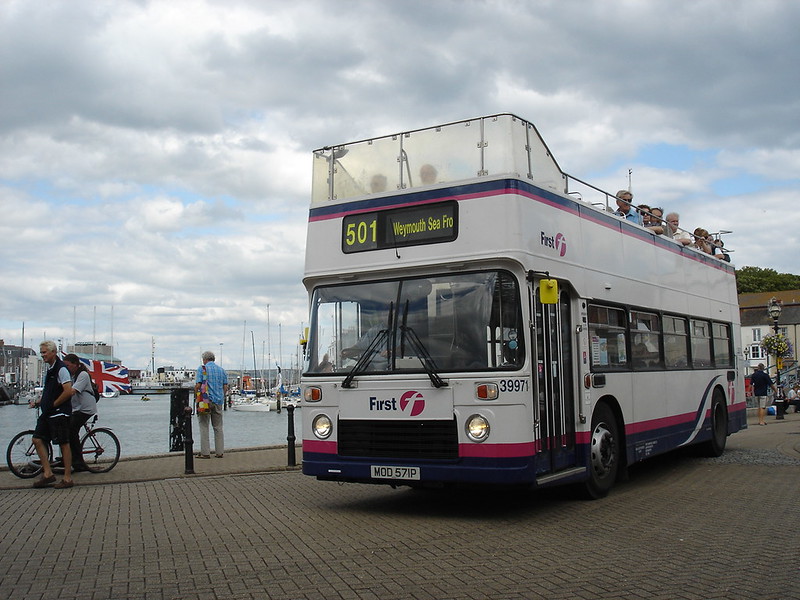Today will mark the latest round of cuts, euphemistically dubbed “service changes”, to First’s bus network in Bristol. Responding to the sector facing rising fuel prices, driver shortages, and a post-pandemic fall in passengers, you would be forgiven for assuming First was a company on its knees. This is not the case however, with the company announcing profits in excess of £800 million in June of this year. Despite this, First still struggles to operate at a level where the public are satisfied. These cuts will see eight services withdrawn, and two services introduced as partial replacements, are not just a one-off. Just three of First’s remaining commercially operated routes in Bristol have seen any expansion since the turn of the millennium.
This may seem like a small and trivial story, replicated across the country, but it gets to the heart of the impact of local cuts and how limited many councils are in how they can respond.
Bristol’s local government has an edge on other areas though. The West of England secured £105 million from central government, the second highest sum awarded to any region as part of the Government’s “Bus Back Better” funding. Combined with the £540 million secured by the region as part of the City Region Sustainable Transport fund, Dan Norris now has a substantial pot of money at his disposal to solve these issues.
So far Norris has announced that single fares will be cut across the region to £2 by the end of October across the West of England region. However unlike areas such as Greater Manchester – whose Mayor last year laid out plans to take their bus services back into public ownership – day tickets are not having their price capped, and are actually rising for First buses. The discount enjoyed on adult fares by students and those aged 16-21 is being cut from “up to 30%” to “up to 25%” on First services. With the stated reason being that “Changing travel patterns have seen these customers travelling at or above pre-pandemic levels, whilst adult customers are travelling less”. First punishing those who’ve used their services more as a way of attempting to win back those who’ve used it less is certainly an interesting strategy.
Norris is yet to commit to a similar model of franchising as Greater Manchester. The region’s Bus Service Improvement Plan does set out several of Norris’s medium-term ambitions for the region’s buses. By 2024, when Norris is up for re-election, a multi-operator mobile ticketing service, “cap and tap” contactless ticketing and ticketing integrated with local rail services are all due to be rolled out. Much like Greater Manchester’s “Bee Network,” Bristolians will see their buses adopt a common brand, West of England Sustainable Transport. Furthermore, “core urban routes” buses are planned to operate a “turn up and go” schedule, with up to six buses an hour on cross-city routes and up to four an hour on orbital routes avoiding Bristol City Centre – currently only 7% of services operate at a “high” frequency.
This strategy clearly aims to improve the service in the same way other regions are but without implementing franchising. This obviously means the operators still maintain control over some things but also still take the revenue risks that combined authorities such as Greater Manchester are taking on with franchising.
While it may be easy to make a comparison between this strategy and Keir Starmer’s Great British Energy company – which stops short of nationalisation – the rationale behind this move is much more likely down to the make-up of the combined authority’s executive. The West of England Combined Authority’s four members are two Labour, a Liberal Democrat and a Tory, rather than Andy Burnham’s ten Labour members and a solitary Tory.
This could change after South Gloucestershire and Bath & North East Somerset hold their all-out elections in May, but the length of time it takes to implement the current plans mean that the current aim of delivering the tangible service improvements for the public will likely be seen as a better option than delaying them whilst having a potentially fraught row over the precise details of the operating model in the short term. While the merits of franchising versus alternative systems could provide hours of debate among fellow bus nerds, the average bus user simply wants to know “is my bus going to turn up on time” and “is my bus fare going to be cheap and easy to understand?”
The immediate short term priority given the current chaos and the fact that this strategy will require an additional 160 buses across the region is to focus on addressing the bus driver shortage, and Norris and WECA are funding a recruitment drive across the region. The £645million of secured funding could not have come at a better time for Norris and WECA, but how the money is spent will affect much more than Norris’ re-election chances in 2024. How Bristol’s local government responds to the myriad crises that engulfs its bus services could have huge implications for the future of Bristol’s infrastructure, and the current model of local government funding as the Tory party signals a return to austerity.


